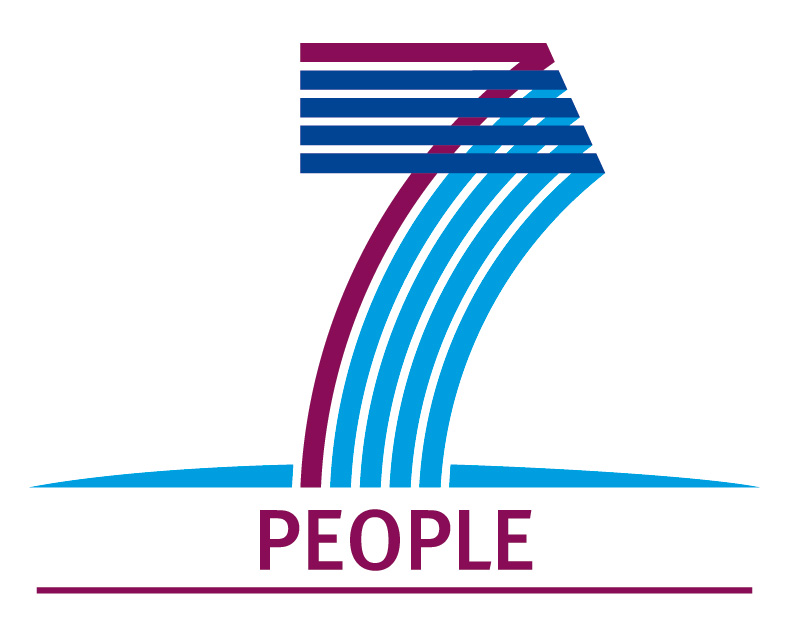Doc-Careers II
Promoting collaborative doctoral education for enhanced career opportunities
The project “Promoting Collaborative Doctoral Education for Enhanced Career Opportunities” (DOC-CAREERS II) has been conceived as an exploratory action to test the feasibility of Regional Workshops as an instrument to foster university-business/enterprise collaboration. DOC-CAREERS I project confirmed that many views on opportunities, challenges and barriers hindering university-industry cooperation are shared by both partners. In this sense, the “diagnosis” of the situation is sound and the common barriers in Europe are well identified. DOC-CAREERS I Case Studies also confirmed that not only are there no “one-size-fits-all solutions” but also that they tend to be specific to every case including local or regional cultural differences, that is, “the way we do things/business here”. In order to capture this diversity, DOC-CAREERS II will look uniquely at how universities work with their regional partners in doctoral education across Europe.
The regional focus of the action will allow us to identify examples of university collaboration with local SME, large R&D enterprises, RTD performers, NGO’s and other industries (health care, cultural, etc.). Building on DOC-CAREERS I outcomes, a series of five Regional Workshops will be held in selected locations, geographically spread throughout Europe (Eastern, Southern, Central-North), with the intention to bring together interested partners in cooperation through doctoral education.
DOC-CAREERS II is a project funded by the Seventh Framework Programme (FP7) through a Support Action within the 2008 People Work Programme.
Project Objectives
The general aim of the Regional Workshops will be to identify specific tools and incentives that may have wider application across Europe. The specific objectives will be:
- To disseminate the outcomes of DOC-CAREERS I in the framework of the “open innovation” model: strategies and good practices on university-industry relations; models and the degree of structure of university-industry doctoral schemes; employability of doctorate holders and its relation with transferable skills; good practices in the tracking of doctorate holders.
- To broaden evidence of good practices validating DOC-CAREERS I outcomes and identifying new models of university-industry collaboration.
- To identify strategies and good practices used by SMEs and other local partners to approach universities and address how their access to university research could be enhanced.
- To bring into the dialogue SMEs who might not be “convinced” of the added value and benefits of university-industry cooperation to identify specific issues to be addressed at local level.
- To explore the perspectives of employability of doctorate holders in the region, mobility opportunities and its relation to regional efforts to reinforce doctoral employability considering the benefits of employing creative workers and their professional expectations.
Final Conference
Promoting Collaborative Doctoral Education for Enhanced Career Opportunities
The Royal Flemish Academy of Belgium for Science and the Arts (KVAB)
Brussels, Belgium
30-31 January 2012
Regional Workshops
Workshop 1
Dublin Institute of Technology
Dublin, Ireland
21 September 2010
Workshop 2
Ecole Polytechnique Fédérale de Lausanne
Lausanne, Switzerland
10 December 2010
Workshop 3
Kaunas University of Technology
Kaunas, Lithuania
5 April 2011
Workshop 4
Norwegian University of Science and Technology
Trondheim, Norway
7 June 2011
Workshop 5
University of Camerino
Camerino, Italy
11 October 2011
Methodology and Expected Outcomes
The potential of the Regional Workshop instrument to be promoted in the context of the future work of the EUA Council for Doctoral Education (EUA-CDE) will be analysed, specifically in relation to encouraging the wider “take-up” of best practices in university-business/enterprise collaboration involving doctoral education. Other possible ways forward will be explored, in particular with the other three partners of the Responsible Partnering Initiative (EIRMA, EARTO and ProTon Europe). DOC-CAREERS II will also serve to validate and revise the Responsible Partnering Guidelines which we are committed to discuss with the other partners.
The expected general outcomes of DOC-CAREERS II can be summarised as follows: achieving greater awareness of skill developments and mobility strategies in doctoral training in Europe with a view of career development and employability; promotion of the benefits of tracking doctorate holders´ careers; gaining empirical insights for reforming doctoral programmes; improving regional cooperation and networking in a dialogue with different potential employers; widening the dialogue with potential employers; fostering greater ability for doctorate holders to choose courses according to the needs and demands of different sectors and multiple careers; building lasting partnerships, networks and joint initiatives aimed at improving collaboration between private and public sectors.
Universities were invited, through a call for expressions of interest, to contribute Case Studies to the DOC-CAREERS II project “Promoting collaborative doctoral education for enhanced career opportunities”. The Case Studies aimed to collect practices in establishing and taking forward collaborative doctoral projects and programmes in cooperation with external non-academic partners such as Small and Medium Enterprises (SMEs), Research and Technology Offices (RTOs), professional bodies, regional offices, and public authorities, etc. For further information, see the call for expressions of interest.![]()
Steering Committee
Prof. Rymantas Kažys, Director of Ultrasound Institute, Kaunas University of Technology, Lithuania
Prof. Eckhard Steffen, Director of Graduate Studies, Universität Paderborn, Germany
Dr. Leopold Demiddeleer, Future Businesses Director, Solvay S.A. Research & Technology, Belgium and President of the European Industrial Research Management Association (EIRMA)
Dr. David Joyner, Director of Business Partnership and Engagement, Research and Innovation Office, Bangor University, United Kingdom
Peter van der Hijden, European Commission
Dr. John Smith, Deputy Secretary General, EUA
Dr. Lidia Borrell-Damian, Senior Programme Manager, EUA
Contact
Eurodoc contact: Greg DeCuir
DOC-CAREERS II is a project funded by the Seventh Framework Programme (FP7) through a Support Action within the 2008 People Work Programme.





















